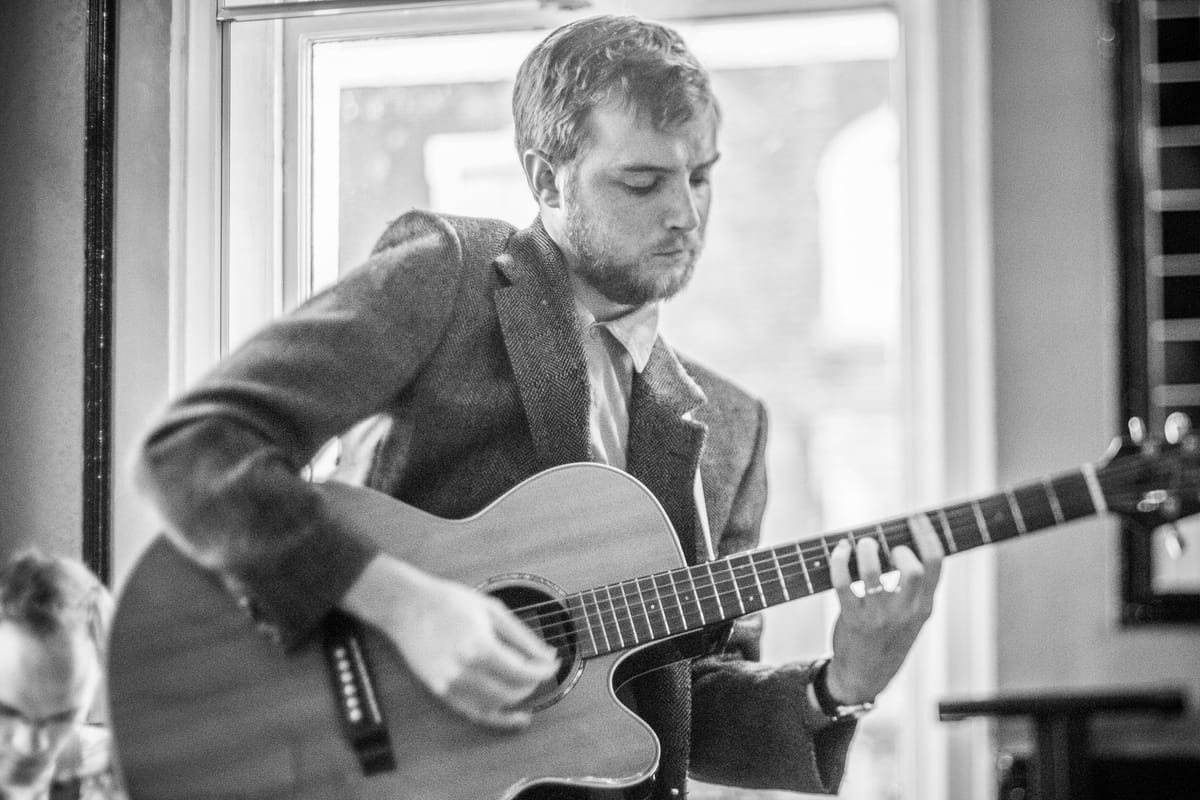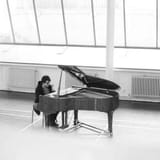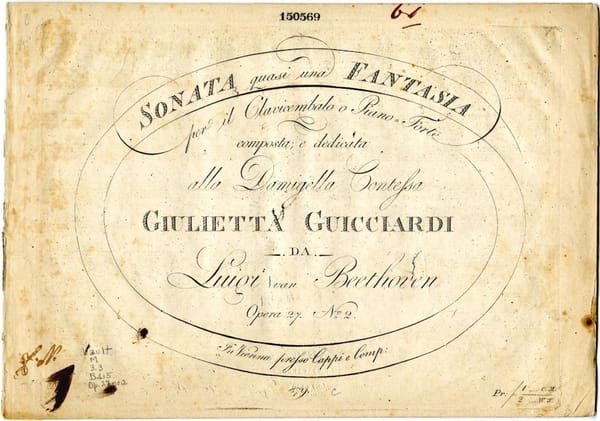James Welburn

Please share your background with us.
I have always been passionate about music and from a very early age I knew that it was something I wanted to pursue as a career. I started playing the piano at the age of seven, before taking up the guitar at twelve. Music featured prominently during my school years and my interests in composition, performance and recording continued to develop.
Having grown up in York, I decided to move to London for my undergraduate degree, where I studied music at City University. As part of my degree I had piano lessons at the Guildhall School of Music and Drama. In addition, I specialised in sound recording and production, electroacoustic composition and music business.
After graduating in 2009, I began a career with ABRSM, where I now look after the company’s work in Malaysia, India, Vietnam and Bangladesh.
What are you currently working on?
I have been primarily working on some new piano compositions this year. I’m currently in the process of finishing a piano work that started off as a hymn but has turned into somewhat of a ballade – this is quite typical of the way I tend to work, as my compositions often emerge from hours of improvisation.
Towards the end of 2015 I spent quite a lot of time working with my church band to arrange some carols for our annual carol service. This was a fantastic experience, working with many top musicians to jazz up some timeless classics.
Why is music and its education important?
Music has been such an important part of my own life for many reasons. It’s well documented that, particularly from a young age, studying and engaging with music has benefits for brain development. Most notable, perhaps, is the impact on our creativity. It is one thing to be able to read music and play the notes correctly; another thing altogether to communicate those notes in a way that moves an audience; and another thing still to create the piece of music in the first place.
Music education still remains an important aspect of my life even after formal studies have concluded. I am currently working towards my DipABRSM in Piano Performance and have realised that progression within music never actually ends. There is always further we can go and always more we can explore.
What career might one choose from after a BMus?
There are many career paths that one could choose after studying music at university. Many of my friends from university are now teachers, freelance session musicians and music educators. Other areas include performance, composition, music business, music therapy, sound recording and production, management and songwriting.
I decided to pursue a career in music education with ABRSM because I am passionate about bringing increased and improved opportunities in music education to people around the world.
Did studying and living in a city like London motivate you?
Absolutely – London is one of the most exciting and vibrant cities in the world. It was quite a change for me initially, as I had grown up in a small village outside of a fairly small city, but the opportunities in London are like nowhere else.
There are concerts and gigs every night of the week so you can always find something to enjoy and to inspire you. Many of the biggest music companies in the world have headquarters or regional offices in London, so employment opportunities (although competitive) are on your doorstep. And probably most exciting of all for me, London is one of the world’s most multicultural cities – with people from all over the world, the music scene is just fantastic. You can find everything from western classical music to Ghanaian highlife, from salsa to gamelan and everything in between.
In addition, you can collaborate with people from a wide range of musical backgrounds, which develops you as a musician. I have worked with people from the UK, South Africa, Ghana, Italy, Spain, USA, Japan, China, Brazil, and many more countries just because I live in London!
What advice would you give to classical music enthusiasts in countries like India?
Playing with other musicians will develop your passion, as well as your musicianship skills, because your energy will bounce off each other. Listen to music as much as you can, whether that is at home or while walking to school or work. Perhaps one of the best tools for developing your musical skills is simply listening to those who have gone before you – I’ve learned so much, for example, by listening to the likes of Horowitz, Ashkenazy and Kissin as they tackle my favourite piano pieces.
Classical music in India continues to develop and the opportunities will increase further in the years to come. ABRSM’s work in India has developed dramatically in recent years and aims to inspire achievement in music. In partnership with the Royal Schools of Music, ABRSM supports high-quality music-making and learning, and offers pathways and resources for learners and teachers that help build musical skills, provide goals and encourage progress. Having taken all of the grades on piano during my school years, I would really recommend ABRSM to budding musicians in India.
Finally, and perhaps most importantly, I would really encourage you to enjoy making music – have fun!

About James Welburn
James Welburn grew up in York and started playing the piano at the age of seven. He studied music at City University, London and specialised in sound recording and production, electroacoustic composition and music business. As part of his degree programme he studied piano performance with Laura Roberts at the Guildhall School of Music and Drama.
James is a self-taught guitarist and in 2009 he achieved a top 25 worldwide finish in Guitar Idol, securing number one in his blues heat. He has performed in bands and for solo artists across the United Kingdom.
Since graduating James has worked for ABRSM, where, as Senior International Operations Executive, he has responsibility for the management and development of ABRSM’s work in Malaysia, India, Vietnam and Bangladesh. He has visited Malaysia, Indonesia, Thailand and Vietnam in recent years and a particular highlight of these trips has been the opportunity to meet with teachers to discuss how best to serve the music education community in their area.
James is currently working on a series of piano compositions for which he will seek publication during 2016. In addition, he is building a portfolio of short pieces available for use on a variety of media platforms.
James and his wife Austra live in North London, where they enjoy playing tennis, hanging out with friends and serving in their local church.





